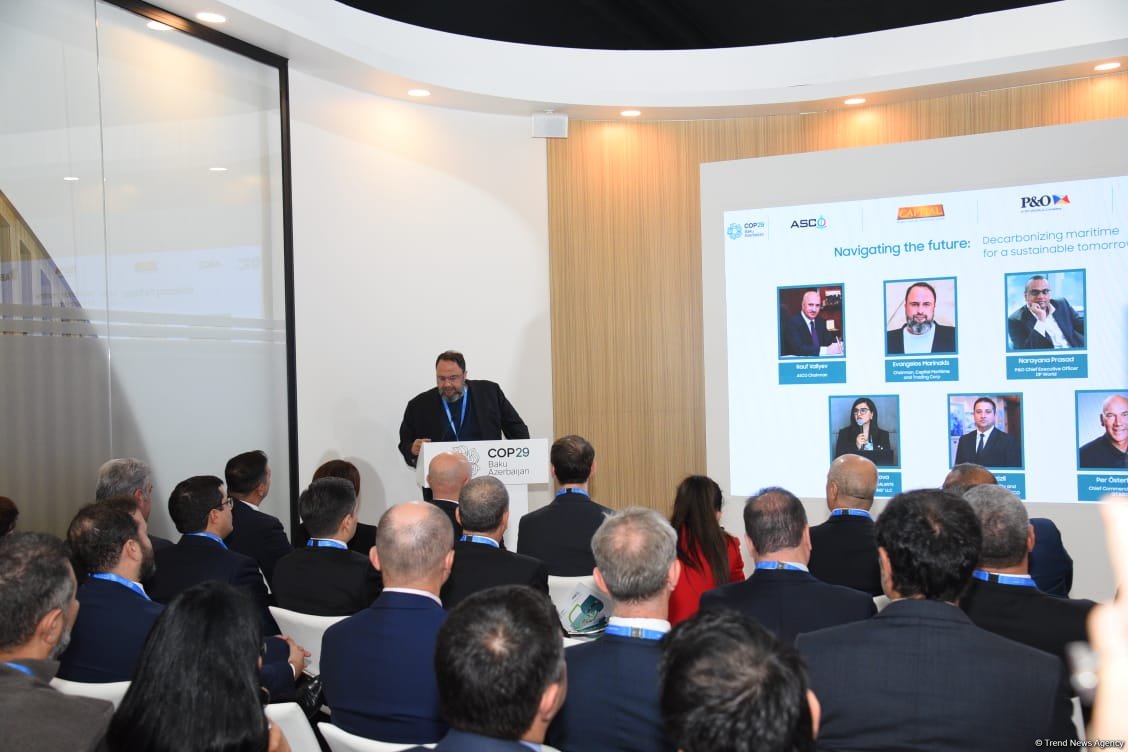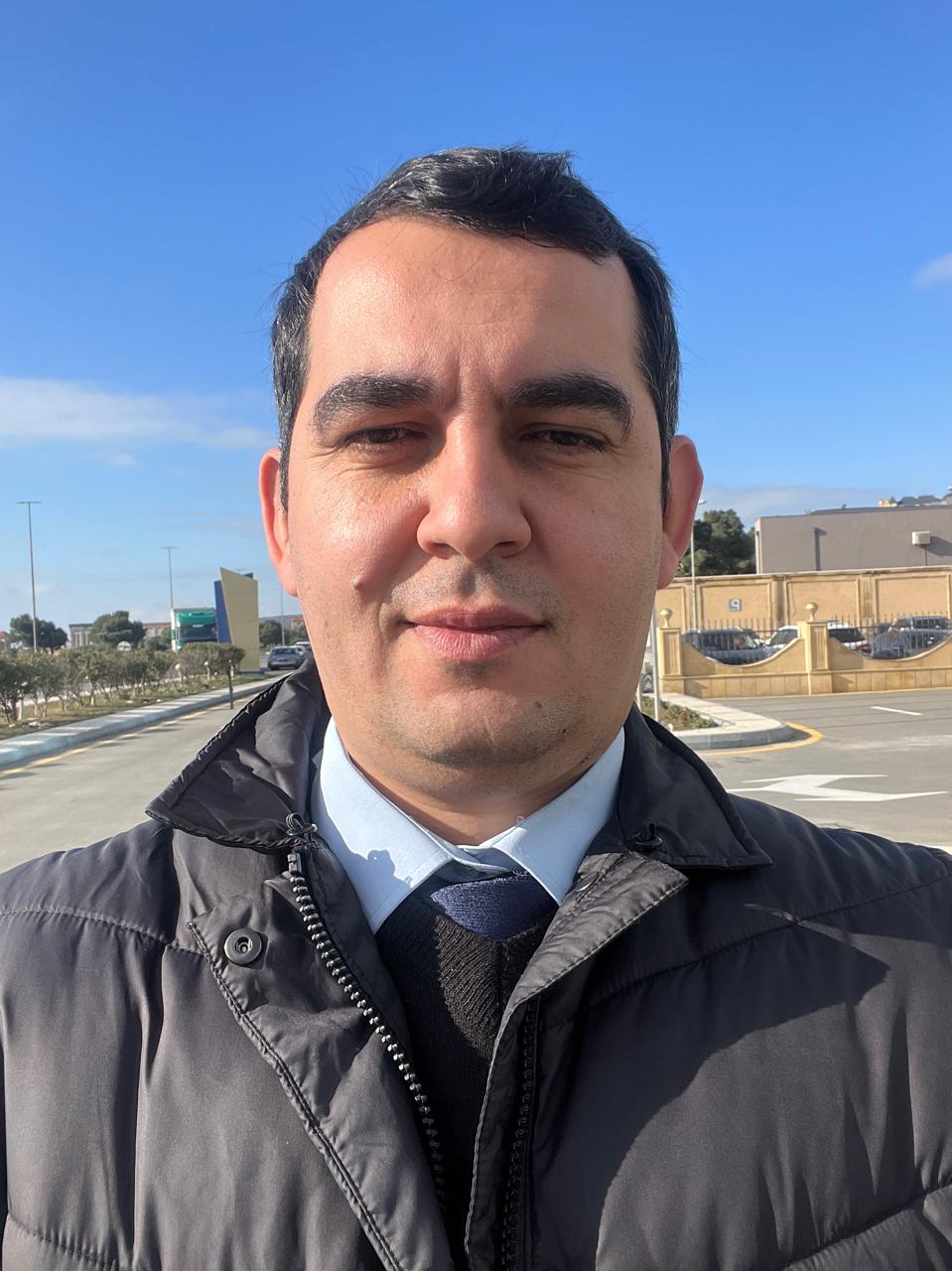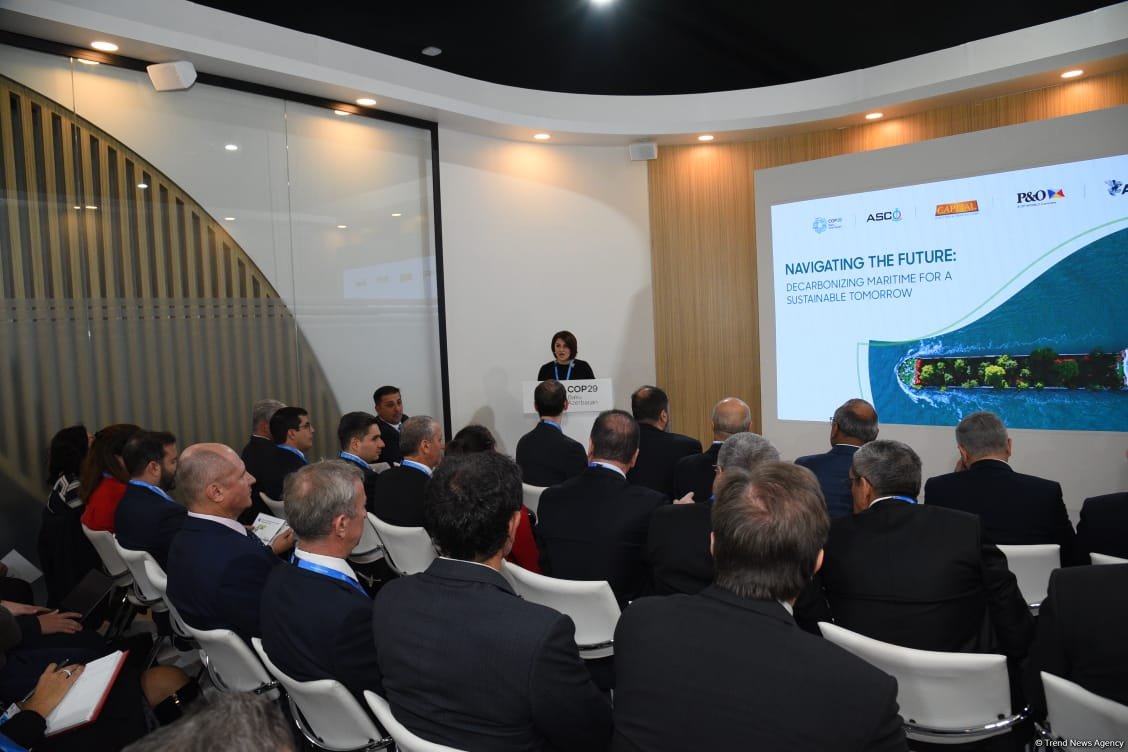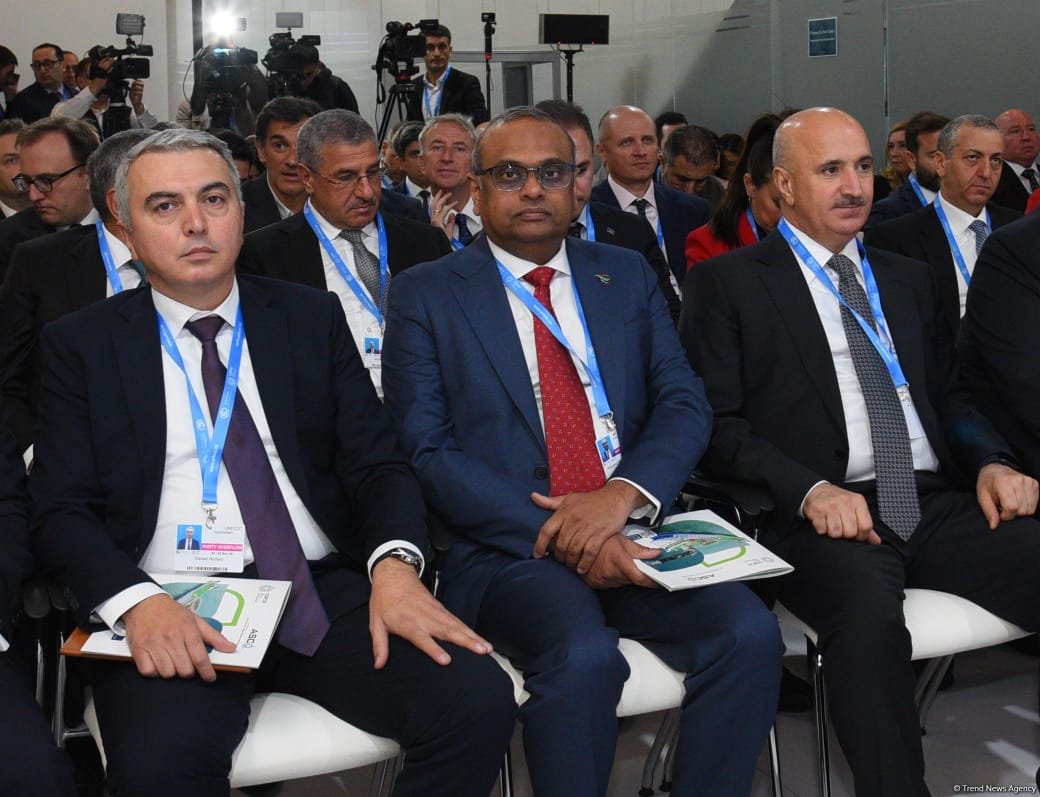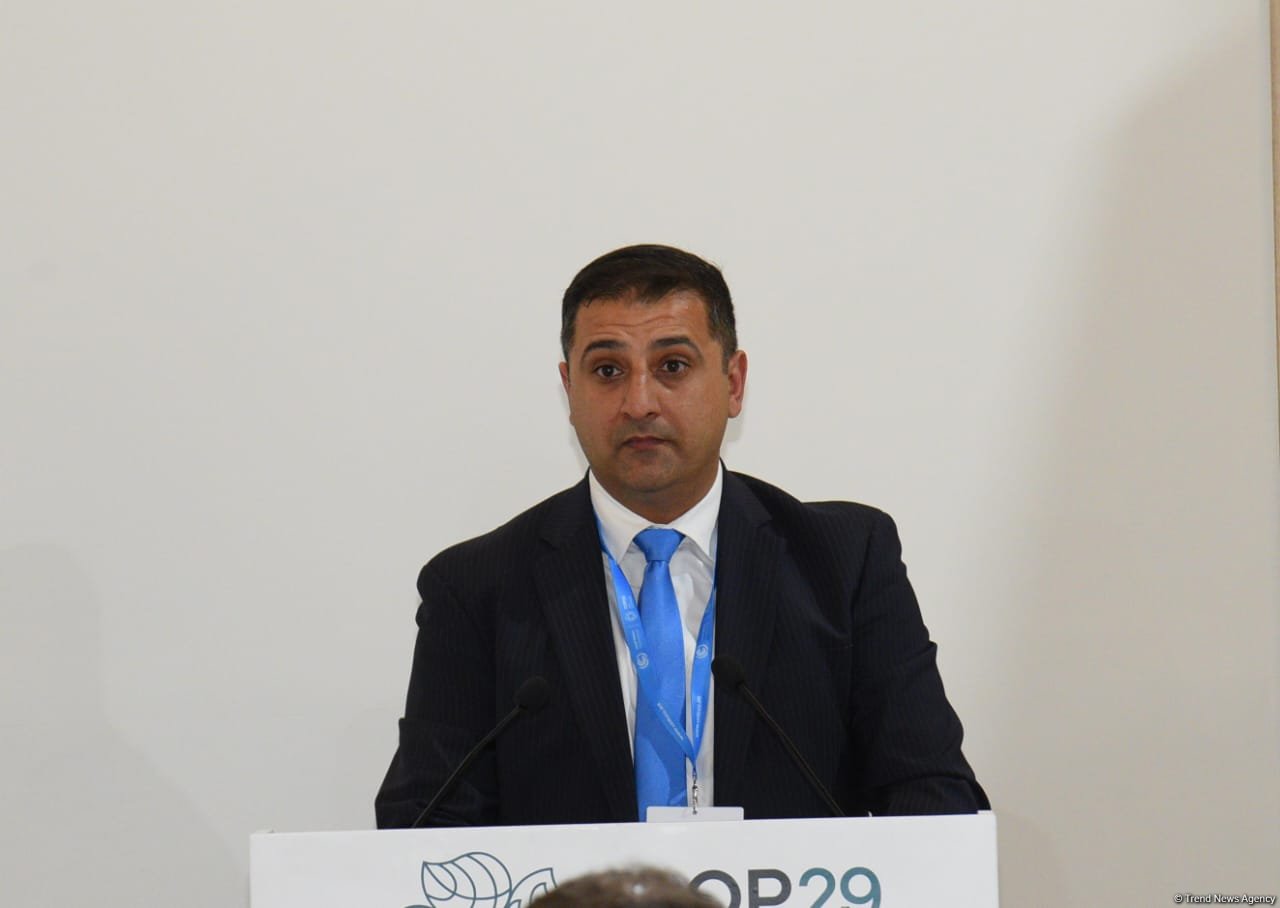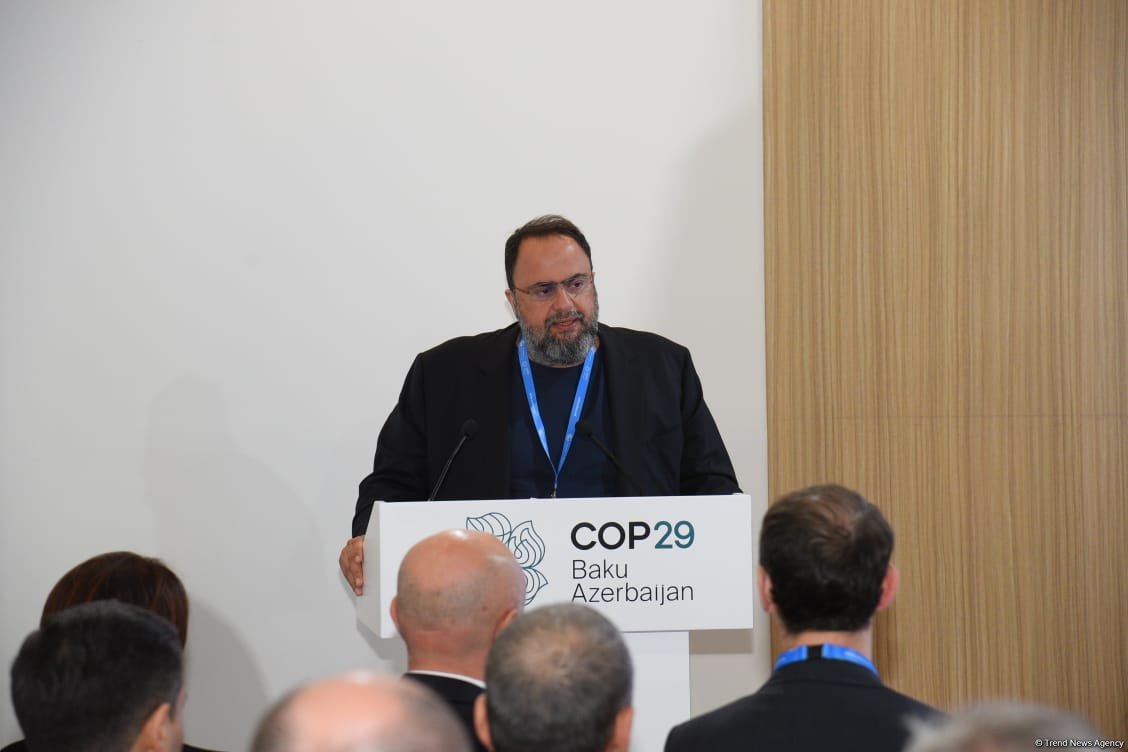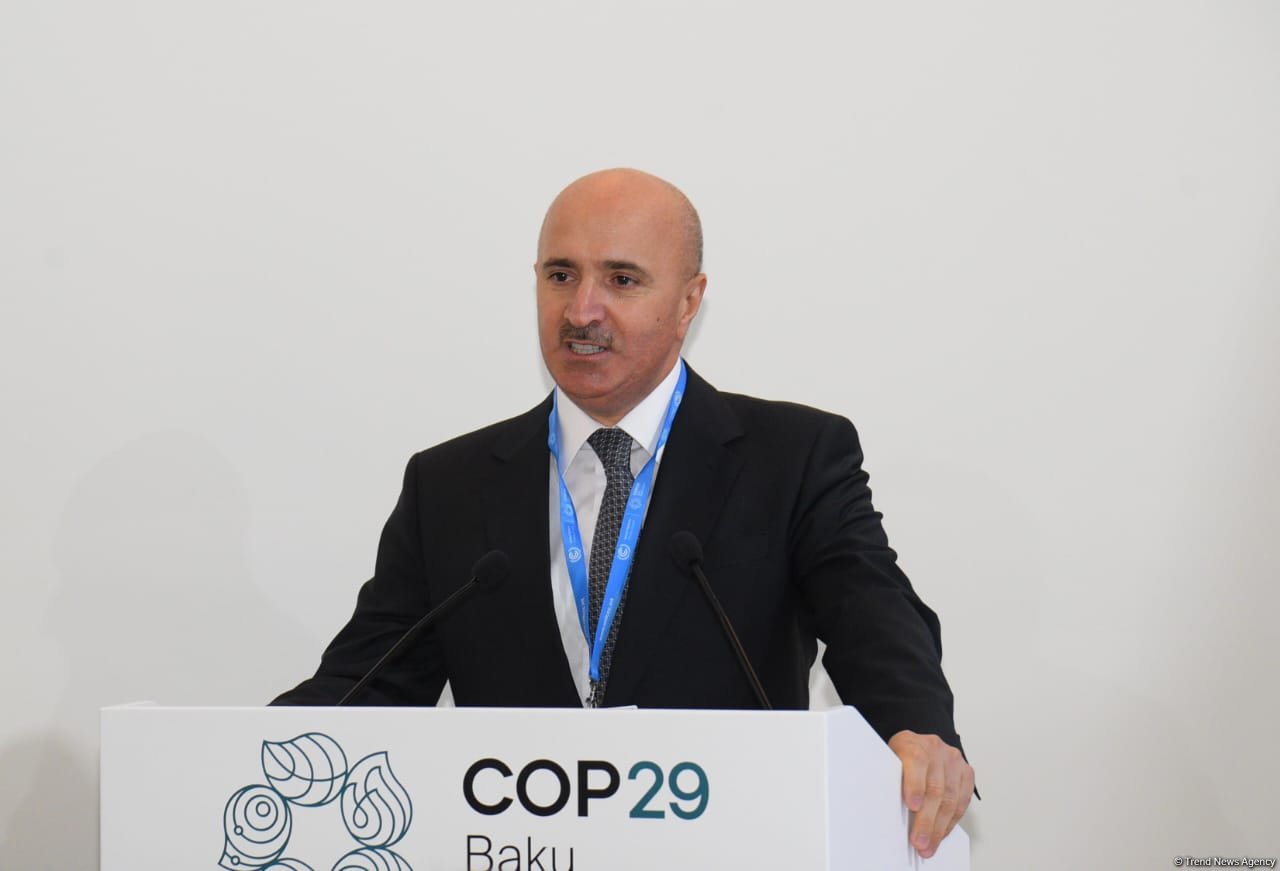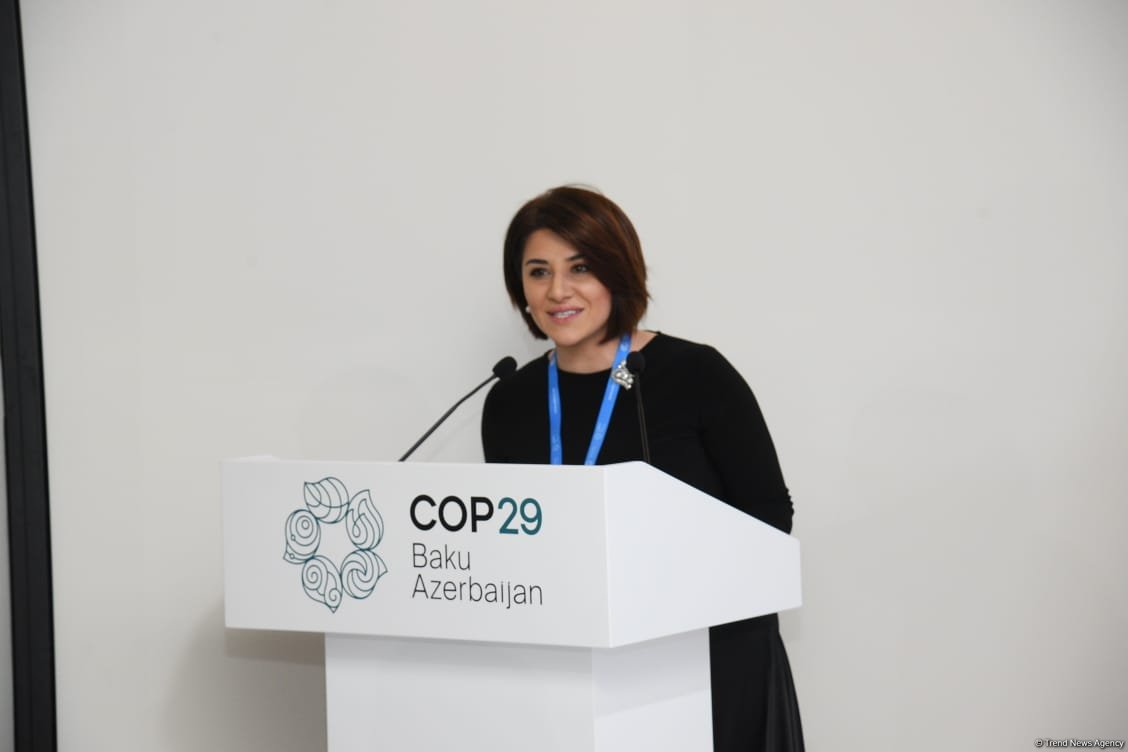BAKU, Azerbaijan, November 20. The discussions on the topic "Navigating the Future: Decarbonizing Maritime for a Sustainable Tomorrow" have taken place within the 29th session of the Conference of the Parties to the UN Framework Convention on Climate Change (COP29), Trend reports.
The discussions organized by ASCO (Azerbaijan Shipping Company) brought together leaders of leading shipping and port companies, classification societies, and prominent experts in the international maritime sector.
In his opening remarks, ASCO Chairman Rauf Valiyev emphasized the historic significance of hosting COP29 in Azerbaijan.
He also highlighted the company's actions and strategic goals in the field of decarbonization.
According to him, ASCO has managed to reduce emissions by 20 percent compared to 2012, enabling the company to achieve the International Maritime Organization's (IMO) 2030 target ahead of schedule.
"This success was achieved through investments in new ships, modernization of the existing fleet, decommissioning of older vessels, and improving energy efficiency. Our goal is to reach zero emissions by 2050 in line with IMO targets. To this end, we are actively developing sustainable solutions and exploring strategies to reduce carbon emissions," Valiyev said.
The Director-General of the Baku International Sea Trade Port (CJSC), Taleh Ziyadov, underlined the importance of cooperation in achieving sustainable decarbonization.
"We are actively collaborating with all our partners, including ASCO, towards green shipping and believe that through joint efforts, we will achieve the goal of zero emissions," he pointed out.
ASCO's Director of Sustainability and Emissions Management Alakbar Azizli presented the company's strategy for reducing emissions and outlined an action plan to achieve zero emissions by 2050.
Founder and Chairman of Capital Maritime and Trading Corp Evangelos Marinakis shared his company's experience in transitioning to green energy, using dual-fuel technologies, and implementing other innovative solutions to enhance energy efficiency.
Narayana Prasad Naramanji Venkata Lakshmi, CEO of P&O Maritime Logistics, a part of the DP World Group, delivered a presentation titled "Decarbonization Strategies: Eliminating Scope 1, 2, and 3 Emissions."
He provided examples of approaches and practices used in international shipping, including those implemented by his company.
Vice President of Business Development for the European Division of the American Bureau of Shipping (ABS) Ezekiel Davis stressed that decarbonization efforts in the shipping industry involve fundamental changes.
"For me, the key to decarbonizing shipping lies in three core elements - awareness, collaboration, and the human factor. While our challenges are significant, these elements point us in the right direction. Together with partners like ASCO, we contribute to the transformation of our industry," Davis said.
Chief Commercial Officer of QTAGG (Quality, Technology, and Advanced Green Guidance) Company, Per Osterberg, delivered a presentation on "New Decarbonization Technologies: EcoPilot."
He spoke about the installation of the EcoPilot system on ASCO vessels, describing it as a significant step toward adopting innovative and green technologies.
ASCO showcased its efforts to reduce emissions in maritime transport and its future plans in a video they prepared for COP29 during the event.
The event concluded with the presentation of ASCO's photo book "In Harmony with Time," dedicated to the 165-year history of the company. The guests received copies of the book in both Azerbaijani and English.
To note, the EcoPilot system plays a vital role in reducing fuel consumption and minimizing carbon emissions.
The 29th session of the Conference of the Parties to the UN Framework Convention on Climate Change (COP29), which will run until November 22, opened at the Baku Olympic Stadium on November 11. It is the largest event organized by Azerbaijan to date and the first time in the region that it is being held in Azerbaijan.
The main expectation from COP29 is to agree on a fair and ambitious New Collective Quantitative Goal (NCQG) on climate finance. The COP29 chairmanship has launched 14 initiatives that include linkages between climate action and the Sustainable Development Goals, including green energy corridors, green energy storage, harmony for climate resilience, clean hydrogen, methane reduction in organic waste, action on green digital technologies, and other topics.
In addition to being a top priority that creates the conditions for action, creating climate finance will also help fulfill the 1.5°C pledge by bringing everyone together.
The UN Framework Convention on Climate Change is an agreement signed at the Rio Earth Summit in June 1992 to prevent dangerous human interference in the climate system. The acronym COP (Conference of Parties) stands for “Conference of Parties” and is the highest legislative body overseeing the implementation of the Framework Convention on Climate Change.
A total of 198 countries are parties to the Convention. Unless otherwise decided by the parties, COP is held annually. The first COP event was held in March 1995 in Berlin, and its secretariat is located in Bonn.
Stay up-to-date with more news on Trend News Agency's WhatsApp channel

